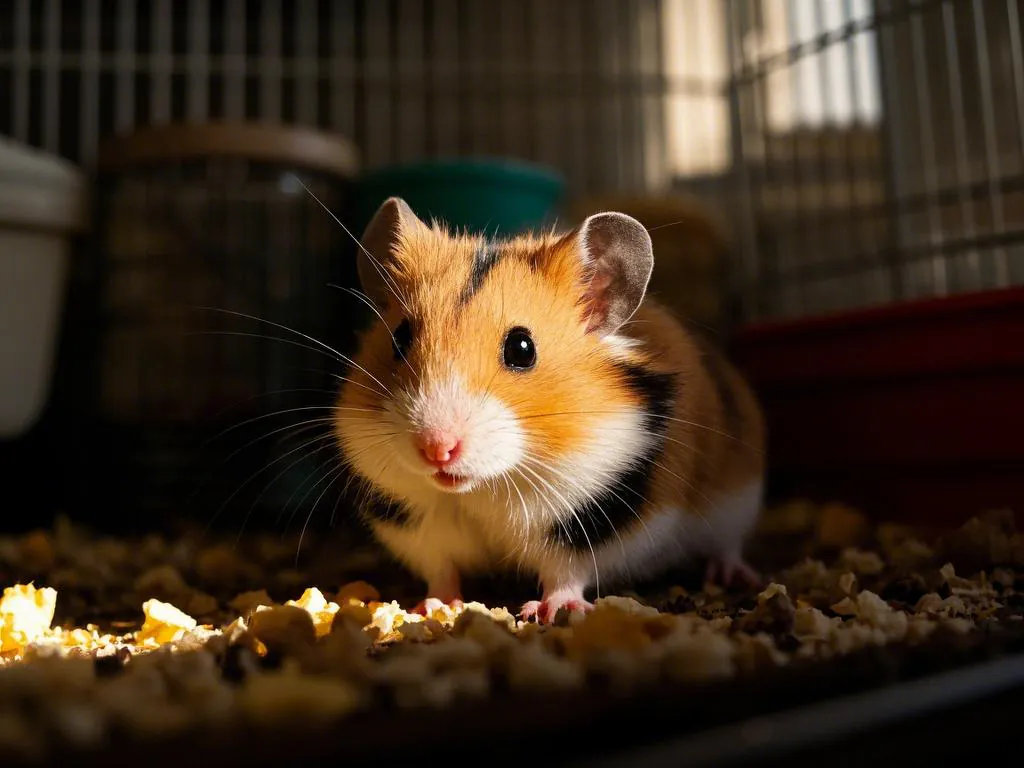The Complete Beginner's Guide to Hamster Care: Essential Tips for New Owners
- 01 Jan, 2025

Are you thinking about welcoming a hamster into your home? These adorable pocket pets make excellent first-time companions! This comprehensive hamster care guide will walk you through everything you need to know to become a confident hamster parent.
Why Choose a Hamster?
Hamsters are perfect starter pets for several reasons: they’re relatively low-maintenance, don’t require much space, and have charming personalities. Whether you’re living in an apartment or have limited time for pet care, a hamster could be your ideal companion.
Setting Up Your Hamster’s Home
Choosing the Right Cage
Your hamster’s habitat is crucial for their happiness and health. The minimum cage size should be:
- Syrian hamsters: at least 450 square inches of floor space
- Dwarf hamsters: minimum 400 square inches
Pro tip: While wire cages are popular, aquarium-style habitats provide better temperature regulation and prevent bedding scatter.
Essential Housing Equipment
Every hamster home needs:
- Deep bedding (at least 6 inches for burrowing)
- An appropriately sized exercise wheel (8” for dwarfs, 12” for Syrians)
- Multiple hideouts and tunnels
- Secure food bowl and water bottle
- Chew toys for dental health
Daily Care Requirements
Feeding Your Hamster
A proper diet is essential for your hamster’s health. Here’s what you should provide:
Base Diet:
- High-quality hamster food mix
- Fresh water daily
Safe Treats (in moderation):
- Small pieces of fresh vegetables
- Occasional fruits
- Unsalted seeds
- Plain cooked chicken (tiny amounts)
Foods to Avoid:
- Onions and garlic
- Chocolate
- Citrus fruits
- Sugary or salty human snacks
Water and Hydration
Always provide fresh, clean water through a bottle or shallow dish. Change water daily and clean containers weekly to prevent bacterial growth.
Health and Hygiene
Cleaning Schedule
Maintain a clean habitat with this schedule:
Daily Tasks:
- Remove soiled bedding
- Clean food bowl
- Check water bottle
- Remove uneaten fresh foods
Weekly Tasks:
- Change 1/3 of the bedding
- Clean toys and equipment
- Wipe cage walls
Monthly Tasks:
- Deep clean entire habitat
- Replace all bedding
- Sanitize all equipment
Signs of a Healthy Hamster
Watch for these positive indicators:
- Bright, clear eyes
- Clean, groomed fur
- Active during wake hours
- Regular eating and drinking
- Normal droppings
Exercise and Enrichment
Physical Activity
Hamsters need regular exercise to stay healthy. Provide:
- A solid-surface exercise wheel
- Safe playtime outside the cage (in a secure area)
- Tubes and tunnels for exploration
Mental Stimulation
Keep your hamster’s mind active with:
- Rotating toy selection
- Foraging activities
- Cardboard mazes
- Different textures and materials
Common Questions from New Owners
Q: How long do hamsters live?
A: Most hamsters live 1.5-3 years, depending on the species.
Q: Should I get more than one hamster?
A: Most hamster species are solitary and should be housed alone to prevent fighting.
Q: Why does my hamster sleep all day?
A: Hamsters are nocturnal animals, most active during dawn, dusk, and night hours.
Q: How can I tame my nervous hamster?
A: Be patient and:
- Start with talking quietly near the cage
- Offer treats from your hand
- Progress to gentle handling
- Keep sessions short and positive
Conclusion
Creating a happy, healthy environment for your hamster doesn’t have to be complicated. Focus on providing:
- A spacious, clean habitat
- Proper nutrition
- Regular exercise opportunities
- Gentle handling and patience
Remember, every hamster has a unique personality. Take time to understand your pet’s preferences and behaviors, and you’ll develop a rewarding bond with your new furry friend.